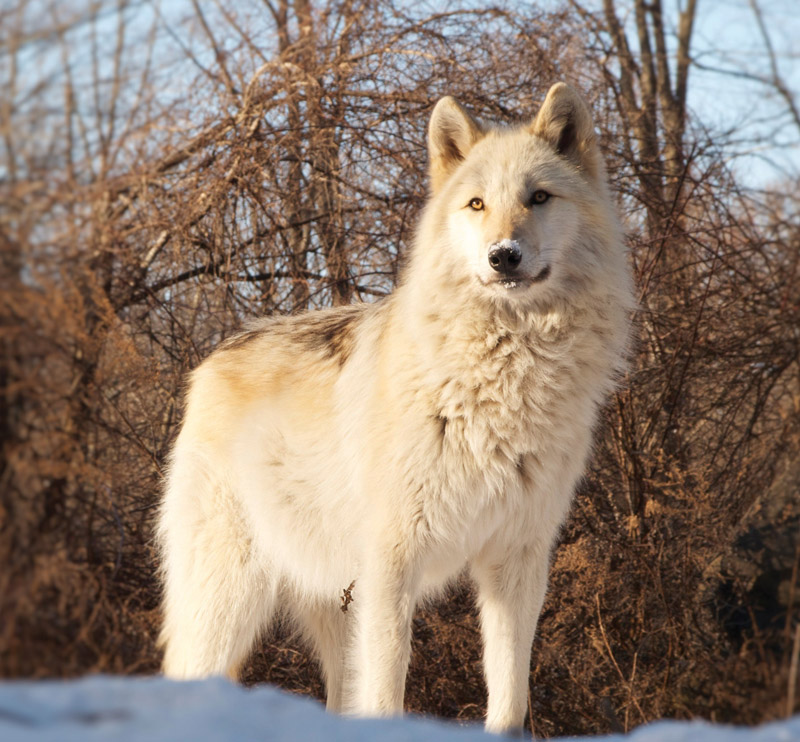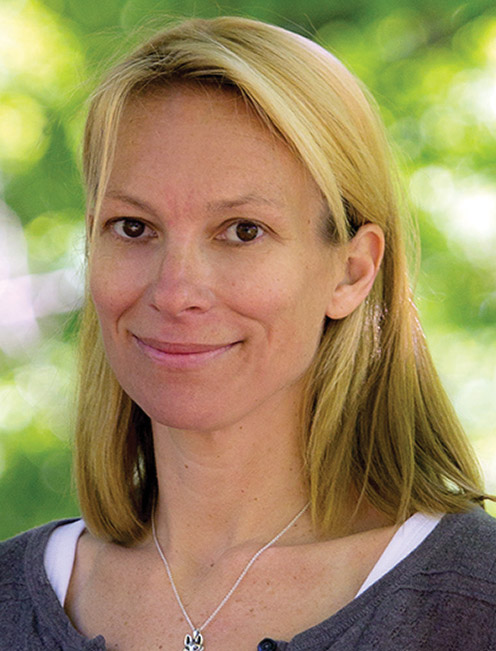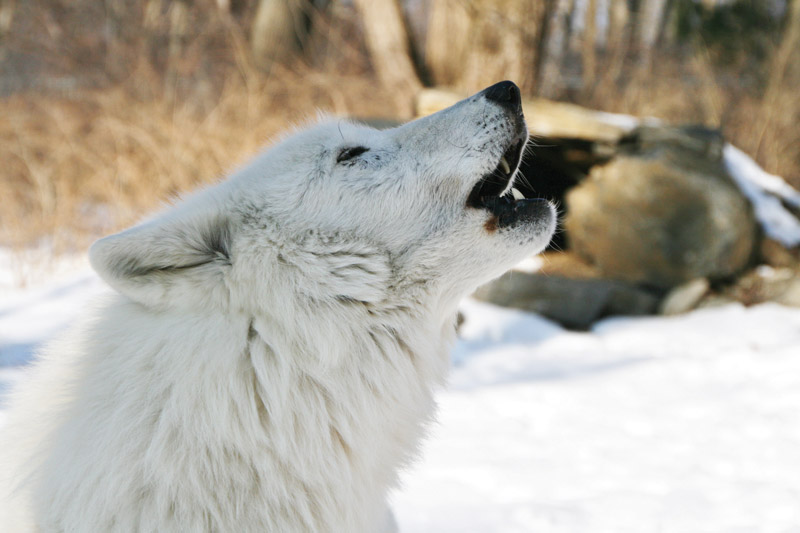Maggie Howell ’95: Saving the Wolves

Wolf Conservation Center (WCC) Executive Director Maggie Howell ’95 says she’s often ribbed because of her name. For a woman whose career focuses on reestablishing wolf populations, the homophones “Howell” and “howl” are just too much for some to resist. She’s had to develop a sense of humor about it.
Something Howell takes seriously, however, is the plight of the wolves in the United States. Wolves get a bad rap, but Howell is working to change that. In addition to educating the public about the wonders of wolves, Howell is helping to reestablish native wolf populations in the Southwest.
A biology major, Howell didn’t immediately head toward animal conservation after Vassar. Her first job was working in New York City’s financial district, helping traders customize computer systems. She says it was “fun,” but not an ideal fit.
Surfing the Internet one day, she came across a web page for a zoology program in Washington State.

“To the dismay of my family, I decided to go for it,” Howell says.
Nine months after she started, Howell landed her first zoology job at Arizona’s Out of Africa Wildlife Park, where she managed the big-carnivore group—an ensemble that included big cats, wolves, bears, and hyenas. The wolves were particularly intriguing, Howell says—they have an important place as a large predator native to North America, complex communication systems, and, because they live in families, an interesting social structure.
She stayed at Out of Africa nearly six years, eventually marrying her fellow employee, Spencer Wilhelm. In 2005 the couple decided to move back to New York State, where Howell grew up. Wilhelm quickly secured a job at the Bronx Zoo and Howell decided to give a call to a place she had heard about while in Arizona—the Wolf Conservation Center. Luck was with her, Howell says, because the center, headquartered in nearby Westchester County, New York, had an opening for a managing director. Her husband followed soon after to become WCC’s operations manager.
The focus at WCC is conservation, an area she had not tackled at her previous jobs. The center is deeply involved in a program to reintroduce the Mexican grey wolf to its natural habitat in Arizona and New Mexico. At one time, there were only seven of the wolves on the planet, all of which were in captivity. In collaboration with other organizations and government agencies, the WCC is helping to reestablish the Mexican grey wolf, using its facility for rehabilitation and genetics profiling to help restore the population. The WCC’s South Salem, New York, facility has 13 Mexican grey wolves. Most are not on exhibit to the public and will eventually be released into the wild. The facility also has educational programs that mobilize support for wolves.

“Wolves have become pretty politicized in recent years,” Howell says, noting that their inclusion and exclusion on the endangered species list is a hotly debated topic.
But the viral video How Wolves Change Rivers, about the reintroduction of wolves to Yellowstone National Park, is giving the controversial canine a bit of help in their public relations campaign, Howell says. The brief but beautiful video combines footage of wolves, deer, and other wildlife in Yellowstone, and time-lapsed images of the changing terrain with a voiceover from a TED Talk on how the reintroduction of wolves in 1995 reinvigorated many species of animal and plant life in the park and even changed the course of a river.
Seen more than 14 million times on YouTube, the clip illustrates the importance of top predators in ecosystems, Howell notes. “At the end of the day, all the scientists agree that wolves will benefit the ecosystem,” she says.
